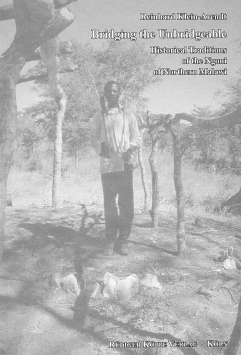


The present study describes the history of emigration of the Ngoni – a people of Northern Malawi – on the basis of oral traditions. These Bantu people who originally were cattle breeders are closely related to the Swazi, Zulu, and Xhosa in both ethnic and linguistic way. At the beginning of the 19th century they emigrated from the southern KwaZulu-Natal to the western and eastern regions of the Malawi Lake where they settled spaciously.
The historical period is characterized by wars and expansion efforts of the Zulu which resulted in repeated emigration and refugee movements of the Ngoni to the north. This historical phenomenon is usually known as Mfecane. The reasons for those wars were desastrous droughts at the end of the 18th century which lead to enduring famines and an intense decimation of cattle. There were heavy military outrages concerning the access to water and pasture resources.
During his field research in the region in 1995 the author became aware of the fact that the orally transmitted contents of his informants are based on a written source: Yesaya Mlonyeni Chibambo’s work Makani gha baNgoni, first published in 1932 in the Tumbuka language, and in 1940 in an English translation with the title My Ngoni of Nyasaland. This important study constitutes the only exhaustive source of the oral historical knowledge of the Ngoni.
Klein-Arendt thoroughly analyzes the text and presents divergent statements of his Ngoni interview partners. The original Ngoni texts with the English translation follow an introduction into Ngoni history and the analysis of the Chibambo text. The work is therefore predestined for ethnologists and historians interested in African history, as well as for researchers in African Studies and in oral literature.
© 2026 by Rüdiger Köppe Verlag – www.koeppe.de